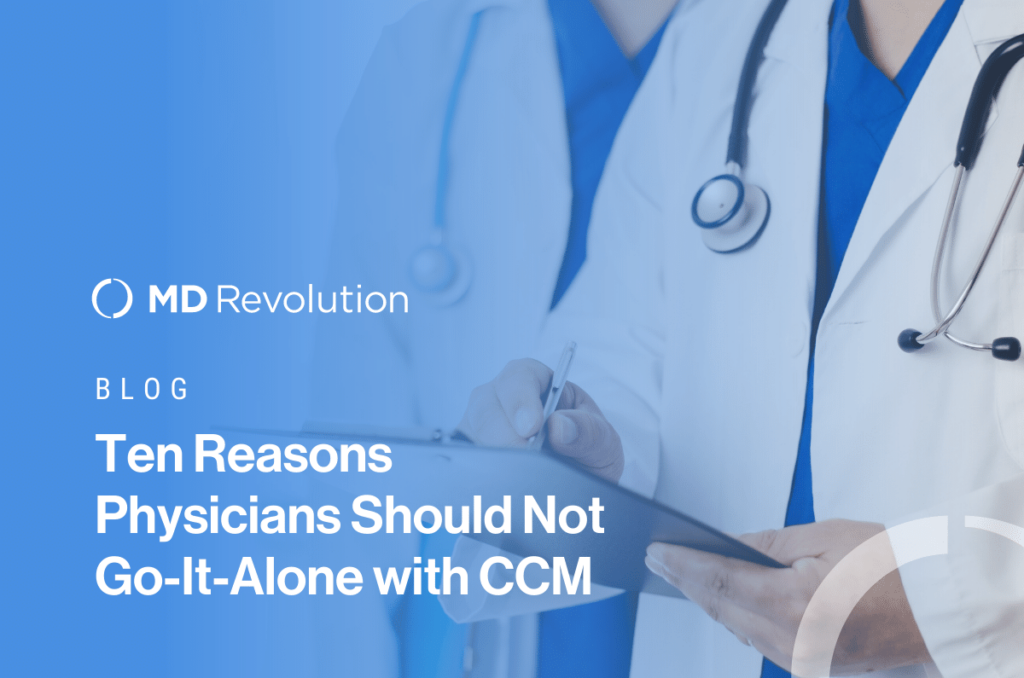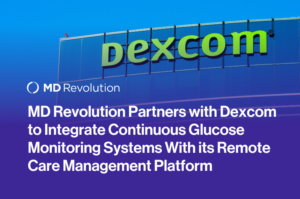Medicare’s CCM code is a potential boon for patients and physicians. However, it’s important for practices to recognize the many challenges they may face implementing the new code while staying faithful to CMS regulations. Below are ten reasons why doctors should not use the Go-it-Alone approach when it comes to CCM.
1. Registering CCM Patients
Medicare patients are not automatically enrolled; they need to be sold on the program. This means practices must develop consent forms and marketing materials and actively reach out to patients. Practice leadership will have to decide who handles these new duties.
2. Program Design
Practices will have to develop a CCM program, creating mechanisms to document care and enter consent forms and other materials into the practice’s EHR. On a practical level, they must also decide which varieties of care management they will perform.
3. Administrative Staffing
Who will manage the program? There are many labor-intensive aspects and many practices will need to hire a dedicated program manager. As the number of enrollees increases, other staff may also be added.
4. Clinical Staffing
The 20 minutes of non-face-to-face care must be performed by clinical staff. If the practice is already impacted, they will have to hire more clinicians.
5. Workflow
To qualify for reimbursement, each remote CCM interaction must be fully documented. This could significantly disrupt workflow throughout the office—from reception to patient exiting – as staff stop what they’re doing to develop a care plan, provide a copy for a patient or time and date stamp an interaction.
6. Contacting Patients
The CCM rules are quite specific about which contacts qualify for reimbursement. While a phone call does, a voice message does not. Email is not HIPAA-compliant. Other options include secure messaging and the internet, which leads to…
7. Information Technology Infrastructure
Many practices don’t have the technology to provide patients with secure access to their EHR, as required by CMS. In addition, providing a compliant network to reach patients can be expensive.
8. Due Diligence
Obviously, these regulations are both detailed and complicated. Each practice will have to conduct their own due diligence to ensure they are fully complaint.
9. Unenviable Choices
Practices have a choice: they can adopt the CCM code with their existing infrastructure or expand their practice. In the first case, the additional compliance issues could easily overwhelm both staff and IT. In the second, they must invest in new employees and technology.
10. Cost
Hiring clinical staff alone will cost at least $50,000 for salary. Practices must then factor in other expenses, such as benefits, computers, telephones, office space and EHR user licenses.
Rather than following a go-it-alone strategy—or rejecting remote CCM services entirely—practices may be better served by outsourcing the administrative, care and IT requirements associated with the CCM code. MD Revolution offers a scalable solution that can help practices enhance their CCM without destroying workflow or generating unsustainable costs.



